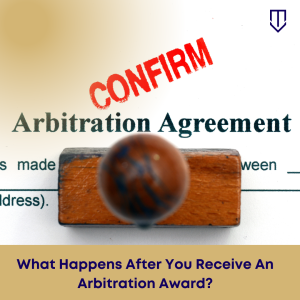 If the parties consent to arbitration, they decide to settle their dispute outside the confines and strict procedure of courtrooms. That said, arbitration awards are not automatically court judgments just because they resolve legal claims.
If the parties consent to arbitration, they decide to settle their dispute outside the confines and strict procedure of courtrooms. That said, arbitration awards are not automatically court judgments just because they resolve legal claims.
On the contrary, arbitration awards are just contracts between parties and are not independently enforceable under the law. For that reason, those individuals who receive an arbitration award need to take one final step and confirm the award by petitioning the court.
These petitions, however, can be the subject of much litigation in their own right. Parties will treat these petitions as a means of re-opening legal disputes the arbitration was designed to close. But it doesn’t need to be this way. At Underwood Law Firm, our attorneys are well-versed in the law surrounding arbitration and other methods of alternative dispute resolution. With our assistance, we can help litigants get through the arbitration process.
 California Partition Law Blog
California Partition Law Blog


 Even when a party finally secures a judgment of partition, the property itself must still be sold (or partitioned in another way). This raises a brand-new set of issues for litigants as they attempt to figure out the terms of sale, when the property should be sold, and, most importantly, the asking price.
Even when a party finally secures a judgment of partition, the property itself must still be sold (or partitioned in another way). This raises a brand-new set of issues for litigants as they attempt to figure out the terms of sale, when the property should be sold, and, most importantly, the asking price.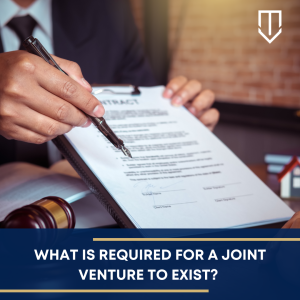 In California, business enterprises can take many forms (LLCs, corporations, partnerships, etc.). But perhaps the most unique is the “joint venture,” a special entity that, more often than not, is
In California, business enterprises can take many forms (LLCs, corporations, partnerships, etc.). But perhaps the most unique is the “joint venture,” a special entity that, more often than not, is  Even when a party finally secures a judgment of partition, the property itself must still be sold (or partitioned in another way). This raises a brand-new set of issues for litigants as they attempt to figure out the terms of sale, when the property should be sold, and, most importantly, the asking price.
Even when a party finally secures a judgment of partition, the property itself must still be sold (or partitioned in another way). This raises a brand-new set of issues for litigants as they attempt to figure out the terms of sale, when the property should be sold, and, most importantly, the asking price. In most partition actions, the court appoints a partition referee in order to see that the property is sold or properly divided. The job of a Partition referee requires one to carry out several responsibilities and obligations. The purpose of this article is to provide some information on a partition referee’s duties and authority under the partition statutes.
In most partition actions, the court appoints a partition referee in order to see that the property is sold or properly divided. The job of a Partition referee requires one to carry out several responsibilities and obligations. The purpose of this article is to provide some information on a partition referee’s duties and authority under the partition statutes. 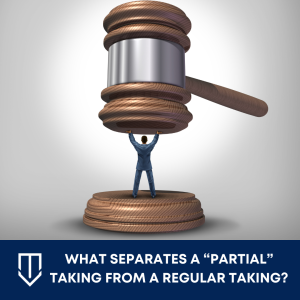 Not all eminent domain proceedings involve the government taking an entire piece of property. If the property is large enough and the government’s project is limited in scope (expanding a road, for instance), then the government can instead opt for a “partial” taking of the property.
Not all eminent domain proceedings involve the government taking an entire piece of property. If the property is large enough and the government’s project is limited in scope (expanding a road, for instance), then the government can instead opt for a “partial” taking of the property.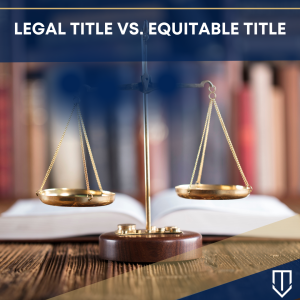 The significance of the differences between legal and equitable title is an outright confusing topic, requiring some knowledge of constructive trusts, beneficial interests, and seller’s liens. That said, the concept can be made digestible by boiling it down to its essential elements. When done, this simplification reveals how often we encounter both types of titles in common real estate transactions.
The significance of the differences between legal and equitable title is an outright confusing topic, requiring some knowledge of constructive trusts, beneficial interests, and seller’s liens. That said, the concept can be made digestible by boiling it down to its essential elements. When done, this simplification reveals how often we encounter both types of titles in common real estate transactions.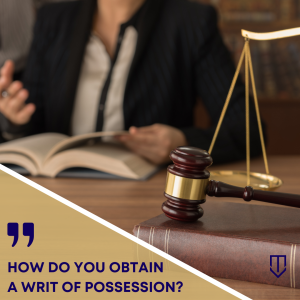 Writs of possession are special statutory remedies that usually appear in unlawful detainer actions. As their name implies, they are a means of recovering possession from someone who is wrongfully occupying a property. Writs are unique, however, in that they are almost exclusively a post-judgment tool.
Writs of possession are special statutory remedies that usually appear in unlawful detainer actions. As their name implies, they are a means of recovering possession from someone who is wrongfully occupying a property. Writs are unique, however, in that they are almost exclusively a post-judgment tool.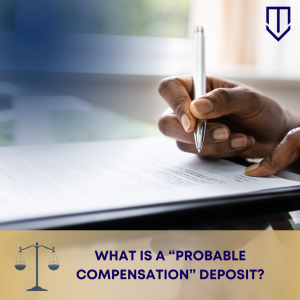 Eminent Domain proceedings will almost always end with the government taking title to private property after it pays out “just compensation” to a homeowner.
Eminent Domain proceedings will almost always end with the government taking title to private property after it pays out “just compensation” to a homeowner.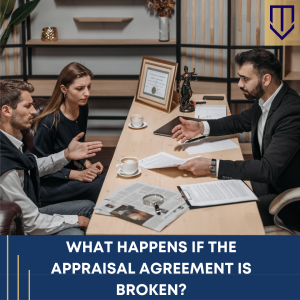 Partitions by appraisal are a unique way to resolve a
Partitions by appraisal are a unique way to resolve a